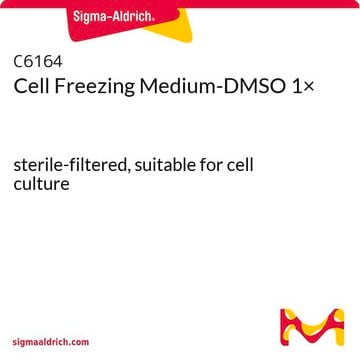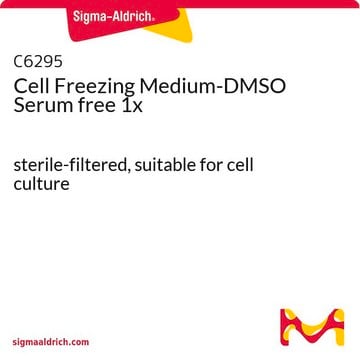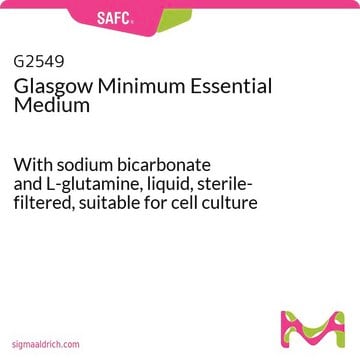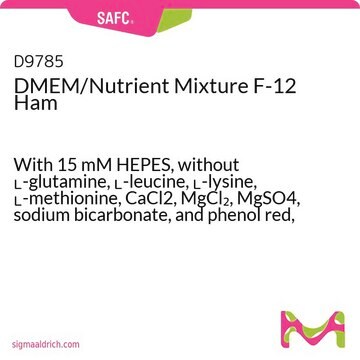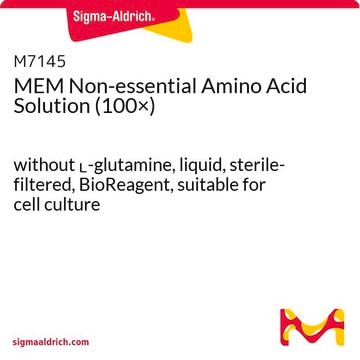51492C
Glasgow′s Modified Eagle′s Medium
Synonym(s):
Glasgow Minimum Essential Medium
About This Item
Recommended Products
description
GMEM, with 800 mg/L glycine, with 2750 mg/L sodium bicarbonate, with 110 mg/L sodium pyruvate, without ferric nitrate, without L-glutamine
for research or for further manufacturing use
sterility
sterile
form
liquid
technique(s)
cell culture | mammalian: suitable
cell culture | stem cell: suitable
components
L-glutamine: no
sodium pyruvate: 110 mg/L
phenol red: 17 mg/L
NaHCO3: 2750 mg/L
shipped in
ambient
storage temp.
2-8°C
Looking for similar products? Visit Product Comparison Guide
Application
also commonly purchased with this product
supplement
Storage Class Code
12 - Non Combustible Liquids
WGK
WGK 1
Flash Point(F)
Not applicable
Flash Point(C)
Not applicable
Certificates of Analysis (COA)
Search for Certificates of Analysis (COA) by entering the products Lot/Batch Number. Lot and Batch Numbers can be found on a product’s label following the words ‘Lot’ or ‘Batch’.
Already Own This Product?
Find documentation for the products that you have recently purchased in the Document Library.
Customers Also Viewed
Our team of scientists has experience in all areas of research including Life Science, Material Science, Chemical Synthesis, Chromatography, Analytical and many others.
Contact Technical Service